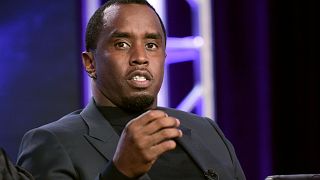Africa
In view of recent terror attacks in West Africa, Ivory Coast and Burkina Faso have raised fears of growing radicalization of youth in the region.
Al Qaeda has claimed responsibility for attacks on a hotel in Burkina Faso’s capital in January and an attack on a popular beach resort in Ivory Coast.
More than 65 people died in the attacks, many of them foreigners.
Experts say radical versions of Islam have been gaining ground in parts of the region like Mali and Niger and gradually spreading to other parts of the region.
Analysts and security experts say the financial and doctrinal penetration of Salafism, the fundamental school of thought, advocating for a return to the original ways of Islam in the region and slippery propaganda from militant groups is making recruitment easier.
Workshop on the theme: “Religious Radicalism and Security Threats in West Africa: National and Regional Perspectives…https://t.co/oFnd1MCPIv
— Thierry S.Bokally (@sanzhiet) February 1, 2016
In Senegal’s poor southern region of Casamance, Boucar Gassama, a retired civil servant is still shocked that his 25-year-old medical student son in Dakar abandoned his studies to join the Islamic State.
“He’s a humanist. During his fourth year at university, he was part of a group that cared for the sick and their peers. For the last two years, he had been doing consultations at the mosque. With this behaviour, he is acting alone. I never thought he would do this,” he said.
He said he has since lost contact with his son after an argument over his decision to depart.
ISIS propaganda and security sources confirm fighters from countries including Chad, Ghana, Senegal and Nigeria are already in Libya, where the group is consolidating its presence.
However, they represent the minority of between 3,000-6,000 ISIS fighters, with the lion share coming from North Africa and the Middle East.
Some religious scholars say more needs to be done to guide students’ readings of the Koran which they often rote-learn at religious schools.
“These are not people who grew up with Islam, with an Islamic education. Education is a process. You and I are muslims, and it’s not like we just converted. We received a certain type of education, we were taught about love, peace, tolerance, affection, and being open. Where we come from, we were taught that everyone is the same, no matter what their ethnic background or race is,” said Imam Cisse Djiguiba.
With growing concern in the region about recruitment into ISIS and other militant groups, countries like Mauritania have closed several Koranic schools since January for security reasons.
In Mali, where an Islamist insurgency is intensifying, some are calling for audits of mosques and NGOs.












01:15
Kenya court sentences two to jail terms for aiding 2019 hotel attackk
01:47
Chinese city of Xuchang is world's biggest producer of wigs
01:15
U.S. considers adding more African countries to travel ban
01:00
Renewed calls to end plastic pollution on World Environment Day
00:52
Bill Gates says most of his $200 billion fortune will go to Africa over next 20 years
Go to video
Africa’s First Multilingual Small Language Model Gets Even Smaller - Thanks to Top African Innovator